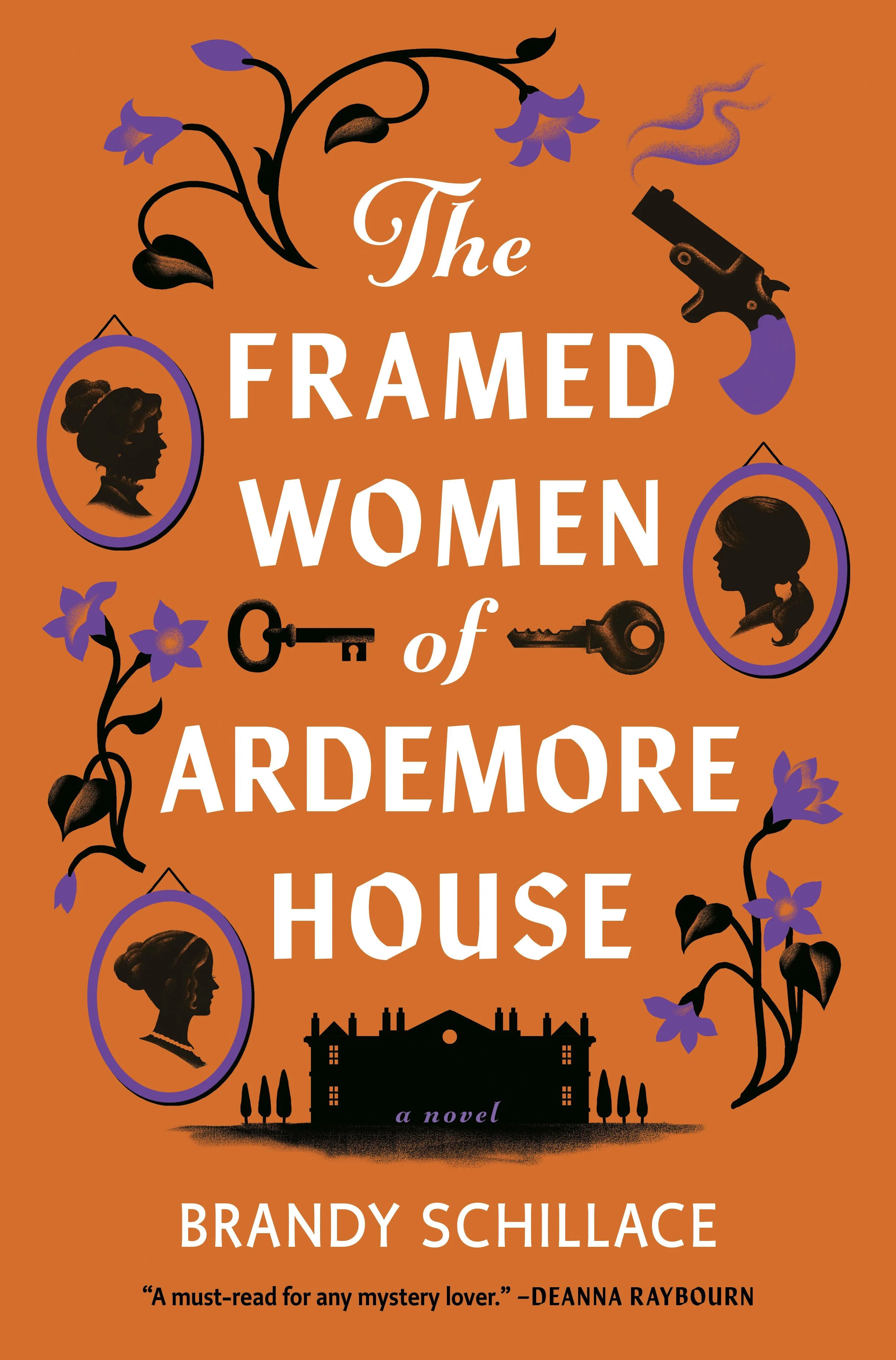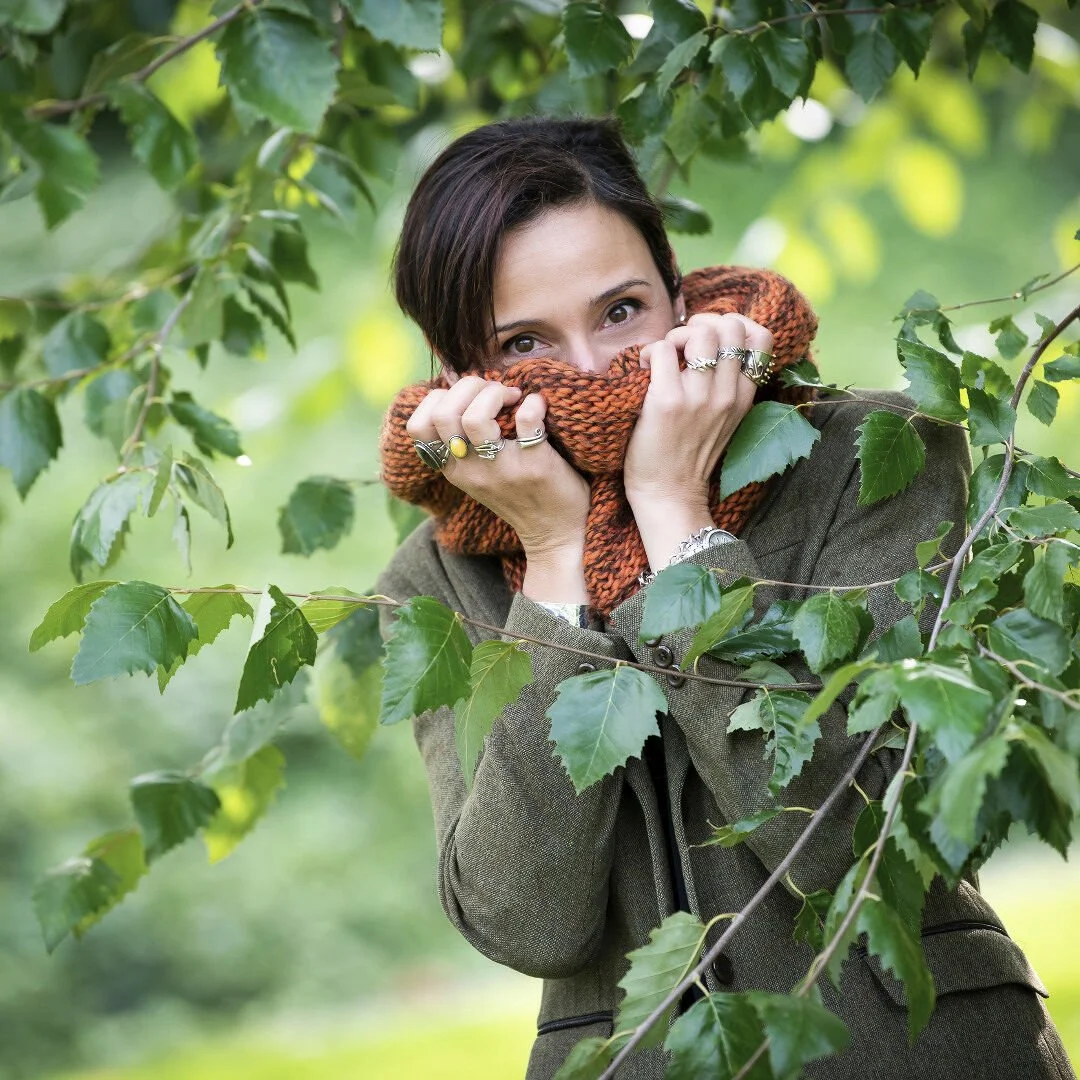Spotlight: The Framed Women of Ardemore House by Brandy Schillace
/An abandoned English manor. A peculiar missing portrait. A cozy, deviously clever murder mystery, perfect for fans of Richard Osman and Anthony Horowitz.
Jo Jones has always had a little trouble fitting in. As a neurodivergent, hyperlexic book editor and divorced New Yorker transplanted into the English countryside, Jo doesn’t know what stands out more: her Americanisms or her autism.
After losing her job, her mother, and her marriage all in one year, she couldn’t be happier to take possession of a possibly haunted (and clearly unwanted) family estate in North Yorkshire. But when the body of the moody town groundskeeper turns up on her rug with three bullets in his back, Jo finds herself in potential danger—and she’s also a potential suspect. At the same time, a peculiar family portrait vanishes from a secret room in the manor, bearing a strange connection to both the dead body and Jo’s mysterious family history.
With the aid of a Welsh antiques dealer, the morose local detective, and the Irish innkeeper’s wife, Jo embarks on a mission to clear herself of blame and find the missing painting, unearthing a slew of secrets about the town—and herself—along the way. And she’ll have to do it all before the killer strikes again…
Excerpt
CHAPTER ONE
The house was enormous. Jo didn’t know enough about local architecture to date it, but the walls stretched up in the damp air, big and dark and lichen flecked. Windows had been boarded up; they wept black mildew creases over sandstone sills. Staring through the car window, Jo dropped her eyes down to the stairs, flanked by columns where Jo imagined regal statues might have stood. Or ought to have stood.
“It’s…a castle,” she whispered.
“It is most certainly not a castle,” said Rupert Selkirk, solicitor of Selkirk and Associates, in the driver’s seat beside her. “Not even the largest house in Abington.”
Solicitor. Jo rolled the word around in her mouth. She’d pocket it for later rumination; it was nice to have a word for chewing on. It suggested antique leather chairs and brass lampstands, felt safer than divorce lawyer, and didn’t trigger the same sort of gut gripe. Rupert looked exactly as a solicitor ought to, with a high forehead, disappearing hairline, and two very bushy eyebrows. He also drove a puddle-green sedan with the steering wheel on the wrong side of Jo’s expectations. She wondered if the sense of dislocation would fade with the jet lag. It hadn’t exactly improved her first impressions. She forgot to introduce herself, forgot the handshake, stared in absolute stunned silence at the landscape as they drove.
Online pictures had suggested something endlessly green, but the reality was wet and ragged, browned out from the end of winter and laced at the edges with naked tree branches. Jo squinted into the distance, taking in the brackish heath, then trees, then fog. A cluster of trees appeared, lanky pin oaks and a few copper beeches. A crumbling dry-stone wall snaked away from decayed posts; no fence, but the remnants of one. She let her eyes wander its length to a dark smudge of woodland and black bark dotted with lichen. The rest of the hill loomed treeless, stark, and scarred by eruptions of additional stone. Moors, she thought. Endless and rolling with dry heather and wet peat.
Jo had pressed herself to the glass, ignoring the steam prints she made. She hadn’t brought much with her—certainly not her books. But Wuthering Heights might have been a good choice. Relaxation breathing had never been much use to her; whenever she consciously thought about autonomic responses, they went all wrong. So she mentally recited the opening lines of the novel as the car grumbled to a halt in the shadow of Ardemore House. As for Rupert, he was repeating himself.
“—Not a castle. The house is wider than it is deep, mostly to take advantage of the south-facing aspect.” Seeing the blank look on Jo’s face, he tried again. “In England, south-facing gardens get the most sun. That’s where you’ll find the Ardemore Gardens. They were the highlight of the property, once. Overgrown now, I’m afraid.” Rupert swept his hand across the horizon as if bisecting it. “Everything east of here is rented for grazing livestock. There is also, as you know, the cottage. It helps defray the tax burden.”
Tax burden. She might want to hold on to those words, too.
“Emery Lane, my assistant, will be drawing up papers while we walk the property,” he said. Jo was starting to run out of processing space, internally. She felt a hiccup of emotion and press-ganged it into a smile.
“Papers?”
“For you to sign. To take over the property as your inheritance.”
The smile failed. Better say something like yes, good. Quite. Exactly the thing. But Rupert got there first, offering her a hand out of the passenger seat.
“Your mother always spoke very warmly of you, by the way. I was very sorry to hear of her passing.”
At these words, Jo quietly abandoned her pursuit of professionalism.
“Y-yeah. I got the card. Thanks.”
Rupert was still looking at her. She could tell, but wasn’t about to look back. She took in the house, instead, this not-castle that rose straight out of bracken and into a cloud bank.
“I want to go inside,” she said. Rupert joined her across the weedy lawn.
“I thought we would see the cottage first. It’s at least habitable.”
He didn’t seem to understand; Jo was standing in front of Wuthering Heights, and no, she did not want to go poke around a cottage. Not yet.
“Inside,” she said. “Please.” Rupert sighed.
“All right. But have proper expectations. This property has been vacant for a century, at least since at least 1908.”
Now in front of the door, Jo furrowed her brow as Rupert hunted for the right key. That was a surprise, actually. And it didn’t make sense.
“But you said my uncle Aiden had the property? In your email—”
“Ah, but he did not live on-site. Had a flat in York, and—” Rupert stopped abruptly and stumbled back. Jo followed his gaze to see a pair of bright eyes peering back at them through the glass.
“Jesus!”
“Tut, now.” Rupert waved his hand airily. “That’s only Sid Randles, caretaker.”
A moment later, and the man himself opened the door. Lean, lanky, all arms, legs, and a shock of red hair. Attractive in the way of highwaymen and pirates, he was either a very well-kept forty-something, or thirty gone to seed. He was also blocking the way.
“Here’s a surprise,” he said. “This the American, then?”
“Yes. Sid Randles, meet Josephine Black,” Rupert offered.
“Jones,” Jo corrected. “It’s Jo Jones now. I mean, again.” Jo faltered slightly, then dutifully stuck her hand out. Sid tucked an industrial-grade flashlight under his arm and gave her a shake, then squeezed her palm.
“Sounds like an alias,” he said.
“Jo Jones was an American Jazz drummer of the Count Basie Orchestra rhythm section from 1934 to 1948,” Jo said, then puckered her lips as if that would bring the words back. Sid eyed her a minute, then let out a yelp of laughter, and not very kindly.
“Ms. Jones would like a tour. Sid, will you do the honors, please?” Rupert checked his wristwatch. “I need to take this call and there’s no signal inside.” He turned away, and Sid grinned at Jo, one crooked canine slipping over his lip like a storybook fox.
“There’s no electricity,” he said.
“I figured that’s why you have the flashlight,” Jo said, pointing. Imagining him as Reynard from the French fables had done wonders for her confidence. She could almost imagine the swish of his irritated tail.
“Fine, fine. Come on in.” He backed into the hall. “Hope you don’t mind the smell.”
It would be hard to miss it. A puff of musty air assaulted Jo’s nostrils on entering—a wet, rotten odor. The windows were boarded, and in the slanted peek-a-boo light she could just make out the ghost of a table, a phantom of chairs in the foyer. Sid swept the light across the hall from a dust-webbed staircase to a grand room that opened off their left.
“You’ll want to pay respects to the Lord and Lady,” he said, then marched her through the pocket doors. The smell was stronger in here, sharper and more tangible. Then, her heart leapt; she’d caught a glimpse of distant book spines.
“It’s a library?” she asked.
“Yeah. A rotten one.” Sid played the flashlight beam along the mantel of a marble fireplace. “But up there, see ’em? That would be Lord William Ardemore. And his wife, Gwen, of course.”
The portraits were too large, and the beam of the light too small, but she could make out a frowning man with deep set eyes and a woman with a rosebud mouth, who might have suitably graced a Victorian cookie tin. Family members she had never known.
“Damned odd, those two.” Sid flicked the light between them. “Just up and vanished from the place.”
Jo sucked a breath. Did everyone know more about them than she did?
“What do you mean? Vanished how?”
“I mean just that.” He played the light against his own face, campfire style. “Just up sticks and gone. Fired everybody, too, didn’t they? Oh, they’d been toast of the town, like.” He did an awful falsetto: “Jobs for the big garden and big bloody house. Then poof. Like they were running from something.”
Jo was watching carefully for signs of a joke. There didn’t appear to be any, so then she waited for him to carry on. Except he didn’t. She studied him for a few silent seconds, until he gave another bark of laughter.
“Nothin’ to say about that, eh? Well, the old Lord and Lady are the least of your worries, anyhow. There’s a hole in the roof upstairs, an honest to God hole. Between you and me? Be cheaper to pull the house down than to fix it up.”
Jo pursed her lips so hard she felt teeth.
“I just got it! I can’t tear it down!”
Sid only shrugged at her outburst.
“Fair, I guess. But what do you plan to do with it, then? Look around.”
Jo did not, in fact, have an answer to that. Sid apparently meant it rhetorically, anyway, since he was now herding her toward the door.
“To the cottage,” he said. “Come on.”
Excerpted from The Framed Women of Ardemore House by Brandy Schillace. Copyright © 2024 by Brandy Schillace. Published by arrangement with Harlequin Books S.A., a division of HarperCollins
Buy on Amazon Kindle | Audiobook | Hardcover | Bookshop.org
About the Author
Brandy Schillace, PhD, is a historian of medicine and the critically acclaimed author of Death's Summer Coat: What Death and Dying Teach Us About Life and Living and Clockwork Futures: The Science of Steampunk. The editor-in-chief of the journal Medical Humanities, she previously worked as a professor of literature and in research and public engagement at the Dittrick Medical History Center and Museum. Brandy also hosts the Peculiar Book Club Podcast, a twice-monthly show.
The Framed Women of Ardemore House, featuring an autistic protagonist caught at the center of a murder mystery, is her fiction debut.Brandy is also autistic, though has not (to her knowledge) been a suspect in a murder investigation. Find her at https://brandyschillace.com/
Connect:
Author Website: https://brandyschillace.com/
Twitter: https://twitter.com/bschillace
Facebook: https://www.facebook.com/BSchillace
Instagram: https://www.instagram.com/b_schillace/
Book’s Instagram: https://www.instagram.com/netherleigh/
Peculiar Book Club Podcast, Facebook Group: https://www.facebook.com/groups/peculiarbooksclub















































